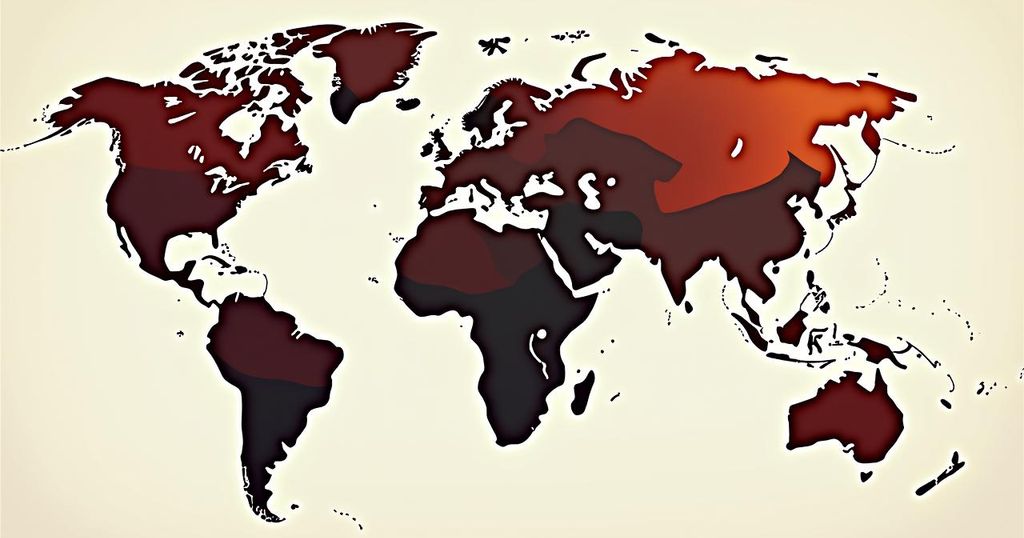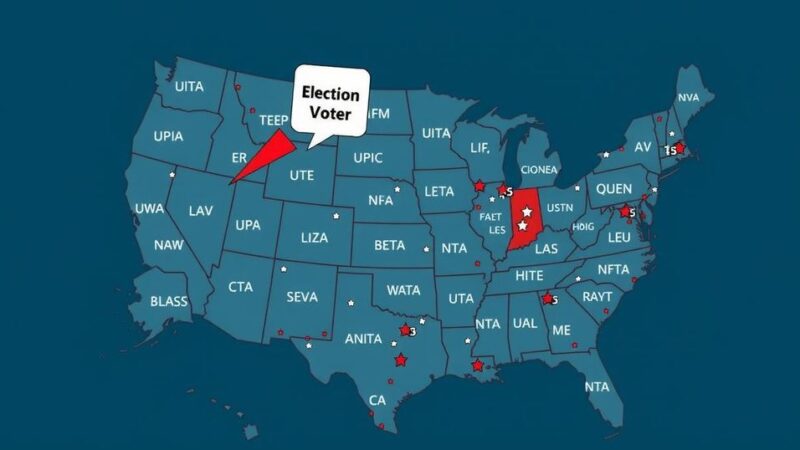Vice President Kamala Harris has been tasked with addressing migration from Central America, focusing on long-term solutions through economic investments. Despite her initiatives, migration has been influenced by various socio-political factors, and her strategies continue to face criticism regarding their effectiveness. Harris’s approach has included collaboration with businesses to generate significant investment pledges, although actual financial commitments have been slower to materialize.
In early 2021, President Joe Biden assigned Vice President Kamala Harris with the task of addressing the significant influx of migrants from Central America, specifically El Salvador, Guatemala, and Honduras. This responsibility has proven to be a considerable political challenge for Harris. Her strategy focused on addressing the fundamental causes of migration by encouraging private-sector investment in these nations to create job opportunities, thus discouraging individuals from making the perilous journey north. Harris emphasized long-term solutions rather than immediate fixes, believing that economic investment would yield sustainable improvements in the region. While there has been a gradual decline in migration from these Northern Triangle countries, experts caution that this trend cannot be solely attributed to Harris’s initiatives, especially as migration levels from other Latin American countries have surged. Contrary to some perceptions, Harris was not designated as the “border czar” despite the label frequently used by critics and media outlets. Instead, her role was focused on diplomatic engagement with Central American governments concerning migration enforcement and return strategies. Critics have argued that her efforts have not adequately addressed immediate border issues, particularly surrounding policies like Title 42. During her tenure, Harris undertook two significant trips to Central America, where she famously advised potential migrants against coming to the United States. However, her lack of direct engagement at the U.S.-Mexico border drew scrutiny and fueled Republican criticism, particularly as the issue of border security became increasingly contentious. Harris has defended her strategies, touting plans for increased border security and fighting drug trafficking as part of her overall agenda. A hallmark of her efforts has been her collaboration with various businesses and nonprofits to secure investments in the region. The vice president’s outreach reportedly led to over $5.2 billion in investment pledges from companies like Visa and Meta, although actual spending remains limited, with approximately $1.3 billion reported as of June 2024. The tangible impact of these investments on migration patterns is still widely debated among analysts and policymakers, with some indicating that other regional factors, such as improved crime rates, have played a more significant role in reducing migration flows.
The article examines Vice President Kamala Harris’s nuanced approach to migration issues emanating from Central America. Faced with rising numbers of migrants attempting to enter the United States, Harris was neither simply addressing the border issues directly nor was she given the title of “border czar.” Instead, her role involved tackling the root causes of migration through business investment initiatives, aimed at enhancing local economic conditions to deter potential migrants from making the dangerous journey to the U.S. This situation highlights the multifaceted challenges of U.S. immigration policy and the ongoing political ramifications surrounding border issues.
In conclusion, while Vice President Kamala Harris has undertaken significant initiatives aimed at addressing the root causes of migration from Central America through economic investment, the actual effectiveness of her strategies remains uncertain. Critics argue that her long-term focus does not effectively resolve immediate border concerns, and the debate continues regarding the underlying factors influencing migration patterns. Ultimately, the complexities of migration issues demand a comprehensive and multifaceted response from the U.S. government.
Original Source: apnews.com






